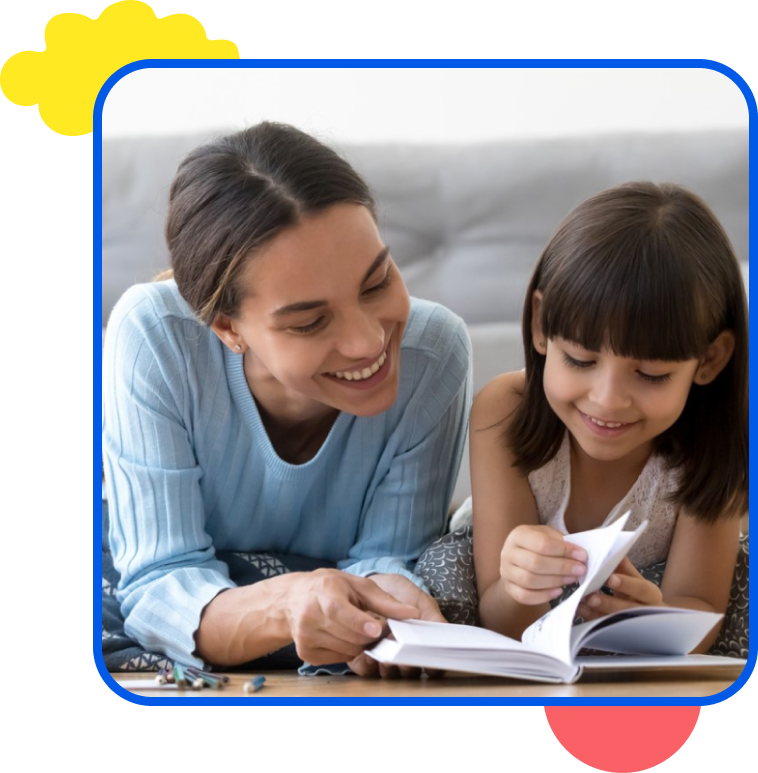The 7 Do’s and Don’ts for Bilingual Parenting



Hundreds of advice columns, blogs, and best-selling books are available for the best parenting advice, tips and tricks for raising children, different parenting styles, and so on. However, there seems to be fewer resources available for parents raising children bilingually.
Raising children bilingually is one of the most important things that you can do for your child.
Although there are a few different approaches to raising bilingual children like the One Parent One Language (OPOL) method, the Minority Language At Home (MLAH) approach, and others, here are a few all-encompassing “dos and don’ts” for all bilingual parenting styles.
1. Do introduce a new language as early as possible
Children are the most adept to learn a new language the younger they are. Learning a language has to do with exposure time.
The more time that they have to be surrounded by a language – the quicker they will learn. Some argue that more developed brains, for example, teenagers and adults, will be more capable of understanding a language, grammar rules, and speech patterns. However, the most natural way to learn a language is to learn like a child.
In fact, children that are exposed to languages at a young age will have a more native accent and fluent way of speaking than an adult learner. This is because children develop an “ear” by distinguishing meaning from very discrete sounds that they hear for the first time. Young children subconsciously pay very close attention to movements and mimic mouth movement patterns for sounds and syllables from adults. These actions create muscle memory for their linguistic development that ultimately helps them achieve the native pronunciation. The sooner you can introduce a language to a child, the better.
Don’t be afraid to teach them a language even if it’s just your second language
If you speak a second language and want to pass it down to your children, don’t be worried if it isn’t your native language. Many parents have a fear that their level of fluency isn’t “good enough” for teaching their children simply because it may not be their first language.
However, passing down a language is one of the greatest gifts you can give to your child, even if it is not your native language. The exposure will be great for their development, even if you do make occasional mistakes. As a plus, you will learn with them and create a strong bond by sharing a language
2. Do pay attention to the amount of exposure
Exposure is critical to learning a new language for anyone. Exposure helps a language learner understand the correct pronunciation of words, grammar, the structure of phrases, vocabulary, speech patterns, and intonations.
Naturally, this seems like common sense. However, it is “easier said than done.” The more exposure that children have to a language, the faster they will be able to start speaking.
Don’t be frustrated if they start speaking later than monolingual children
Bilingual children typically start speaking later than monolingual children.
Why is this? Monolingual children are only being exposed to one language and therefore only need to make sense of one alphabet, one set of phonetic sounds, one language of vocabulary, and one set of grammar rules. Although this information is a lot for a child to process in itself, imagine double.
Bilingual children are being presented with a high volume of information, but their brains are not overloaded in any sense. Due to the volume of new information, bilingual children need extra internal processing time before they start producing sounds, words, and phrases externally.
Although they may take longer to speak than the average monolingual child, when they do start to speak, they have a lot to say!
Do talk, read, sing, and play in the target language
Make language learning fun! Language exposure doesn’t have to only be about structured learning, grammar rules, etc.
Take a look at your child’s interests and see what they respond to best. Is your child musical? Time to take a look at nursery rhymes, fun songs, and the classics in their target language. Is your child a bookworm? There are a ton of resources online for finding short stories in your child’s target language as well as longer books. After reading together, encourage your child to create their own story to read to you.
Music, books, and playing pretend makes a lot of room for new vocabulary and fun memories. Have as much fun as you can!
Don’t stick to only one way of exposure
If your chosen method of exposure isn’t working out well with your child, don’t be afraid to try something new. This could mean looking into social groups, traveling to native speaking countries, volunteering around your town, listening to the radio, or finding pen pals!
4. Do correct your child positively if they make mistakes

Children are going to make mistakes and that is a very natural part of learning a language.
Let’s take English for an example. Have you ever heard a kid say “look how fast I runnned?” Or “I eated a banana for breakfast.” If you’ve been around young children, chances are you have heard these mistakes once or twice.
This is because children understand unspoken grammar rules by recognizing patterns. Many verbs used in the past tense in English end in “-ed” so it’s only natural that they apply this structure to all verbs. However, when children make mistakes (in English or in another language) it’s important to correct them positively.
There is no need to laugh or make fun of a child for making an error, because they simply do not know and have not yet been taught to speak properly. To correct your child, allow them to finish their phrase without interrupting them (unless they pause for help) and correct them after. It’s important that they learn to speak correctly, but if they are struggling to speak, it’s even more important that they feel comfortable and confident speaking even if they do make mistakes. This is why a positive correct and encouragement make all the difference.
Don’t be worried if they mix languages together while they are younger
Remember how we mentioned that bilingual children have double the amount of information to process? At the beginning of their language development, they may try mixing languages to communicate their thoughts and ideas. This is especially common if both parents (or other family members) understand both languages. If everyone understands French and English, why chose just one language in one sentence? This is how children think, anyway.
If children haven’t yet met a person who only speak one language instead of two, they will have a more difficult time sorting out the languages in the future. Therefore, it’s important to encourage your child to stick to one language for one sentence.
The more practice they have and guidelines they receive, the easier it will be for them to sort out the two languages. However, this shouldn’t be too concerning as it’s something that they’ll naturally grow out of.
5. Do find outside resources
The quality of language exposure is just as important as the quantity.
If your bilingual child is in a monolingual school, consider finding a tutor, online classes, or face-to-face courses to help them learn in a more structured environment from a professional. Although this may not be the best idea of exposure for kids under the age of 3, a child, a young adult, or teen will benefit from professional learning. If you think about it, why do we send children to school? To learn! So why not have classes available to them in both of the languages? This is a great way for them to strengthen both of their language levels.
If you’re looking for an online group or individual class for your child aged 3-15 be sure to check out LingoCircle for classes taught by professionals offering a quality learning atmosphere and fun all at the same time.
Don’t be frustrated if they seem to avoid speaking the language
This phenomenon is called “bilingual rebellion.” If your child suddenly refuses to speak a second language to you, this shouldn’t be a cause for concern. This is common with the minority language when children start school. Children want to “fit in” at all times and may notice that none of their classmates speak a second language.
Don’t take this personally, as your child is not rejecting your culture or language – they are only trying to figure out their own identity. This rebellion may only be a short period of time, but nonetheless it requires a lot of patience. Try your best not to be frustrated around your child if they are speaking the minority language less.
Encourage them with fun activities, movies, talking to relatives, and maybe even traveling! Be strong in your culture and show your child that bilingualism is something to be proud of and an advantage that will serve them well throughout their entire life.
6. Embrace both cultures equally
Language is not only a tool for communication. It is a cultural identity.
Allow your child the space that they need to explore both languages and cultures. Talk about the importance of customs, symbols, food, values, holidays, lifestyles in other countries, differences in dialects, and much more!
With bilingual children, it should be difficult for the child to say only one language is their native language because in reality, both of them are! Language A is no more important than language B. The same goes for their cultures. Being proud of both cultures relating to their languages is a great deal of importance for developing their confidence and their identities.
Don’t compare them to other children
Some children learn faster than others. “Sally speaks better than Tommy. Tommy has a better accent than Sally. Sally can already read in both languages but Tommy—” you get the point.
It’s very hard not to compare your child to others when learning two languages at once because you want to be sure that your child is on track. But, it’s important to realize that all children learn at different paces. One child may excel in speaking, while another may have an immense vocabulary for their age. The combinations of strengths and weaknesses are endless, but the important thing is that they are improving in both languages daily.
Consistency is key for improvement. If your child is struggling in one area, for example reading, consider directing more attention into reading together to help them improve. The only person that you should be comparing them to is themselves.
7. Do find a community of native speakers
As mentioned before, bilingualism is part of you and your child’s identity. As they will want to “fit in” in school by speaking the majority language, it’s also important for them to have a community that speaks the minority language. Knowing more people outside their own home that speak multiple languages should encourage them to speak more.
The immersion of the language in a new setting will also allow them to enhance their language abilities and their social skills at the same time. If your children have friends that speak the same languages, they will subconsciously want to develop their language skills to continue their relationships.
Don’t keep the language isolated inside the family
In the same manner, it’s great to show your child that your second language exists and thrives in other places outside the home. Whether this is talking with other family members, community groups, friends, pen pals, or traveling to a country that speaks the minority language, your child can see that this language is a vital way to communicate instead of just viewing it as an optional way to communicate in their own home.
Conclusion
Bilingual parenting is one of the best decision you can make. Although it may be tough at first, it’s worth it in the long run. Bilingual children have many advantages in life and will thank you for all the hard effort and long hours of consistency that you’ve put in to help them become bilingual.


Simple Ways to Learn a Second Language at Home
Get resources and tips to help supplement your bilingual education journey at home.
By providing your email you are signing up to receive emails from Bilingual Bebe. Privacy Policy






